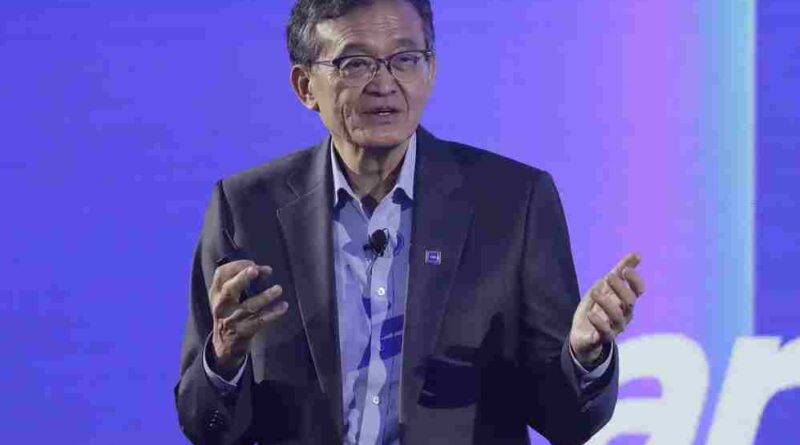Intel CEO Faces Political Firestorm Amid National Security Concerns and Manufacturing Cuts
The CEO of Intel, a naturalised American citizen originally from Malaysia and raised in Singapore, is under intense political scrutiny after a wave of public criticism from former President Donald Trump and prominent Republican lawmakers. The controversy, steeped in concerns over national security and perceived foreign ties, is unfolding just as the tech giant grapples with internal restructuring and shifting global demand.
A seasoned venture capitalist with deep roots in the semiconductor world, the Intel chief has long been respected for his strategic vision and leadership in the industry. However, recent decisions to scale back the company’s manufacturing investments—particularly in the United States—have triggered backlash from political figures eyeing tighter controls over American technology firms.
In a note to investors earlier this week, Intel confirmed it would be reducing its manufacturing expansion plans to better align with customer demand. This comes on the heels of thousands of job cuts in 2025, part of a wider effort to “right-size” the organization amid volatile market conditions.
But it was a fiery post by Donald Trump that truly ignited public attention. The former president, known for his unfiltered approach to corporate critique, declared that the Intel CEO was “highly CONFLICTED and must resign, immediately,” alleging an untenable conflict of interest without providing concrete evidence. The comment caused Intel shares to dip by more than 1.8% in early trading and set off a broader conversation about the balance between corporate autonomy and national loyalty.
Critics of Trump’s comments argue that his call for a CEO’s resignation crosses a line, even by the standards of his past confrontations with American business leaders. Despite that, the White House stood by the former president, asserting that “President Trump remains fully committed to safeguarding our country’s national and economic security,” and emphasizing the importance of leadership Americans can trust in high-tech sectors.
Central to the political scrutiny is the Intel CEO’s history of business dealings and alleged financial connections to China. Republican Senator Tom Cotton recently sent a formal inquiry to Intel’s board, demanding transparency around the executive’s hiring and business affiliations. He referenced the CEO’s past tenure at Cadence Design Systems, which in July settled a U.S. government case for $140 million after a Chinese subsidiary violated export controls by doing business with the National University of Defense Technology—an institution linked to China’s military.
Further fueling the controversy are findings from an April investigation that revealed the CEO had invested at least $200 million in hundreds of Chinese firms between 2012 and December 2024. Some of these companies were reportedly tied to China’s military ecosystem. The investments were made either directly or via his venture capital firm, Walden International, based in San Francisco.
Those ties were also highlighted in a 2024 congressional report examining U.S. investment firms’ connections with Chinese entities, again raising questions about the potential national security implications of American capital flowing into foreign-controlled firms.
Intel, for its part, has stood firmly behind its CEO. In a statement released this week, the company emphasized both its leader’s commitment to the United States and the organization’s integral role within the U.S. defense and technology landscape. “He and the company are deeply committed to the national security of the U.S. and the integrity of our role in the U.S. defense ecosystem,” Intel said.
But political pressure is not easing. Senator Bernie Moreno, a vocal Trump ally, joined the fray Thursday, criticizing Intel not only for the executive’s background but also for the slow pace of promised chip manufacturing projects on U.S. soil. “America can’t afford delays,” Moreno said, pointing to global supply chain vulnerabilities and competition with China.
This controversy comes as semiconductors continue to be a central battleground in the ongoing geopolitical rivalry between the U.S. and China. Trump has recently floated the idea of additional tariffs on imported chips—a policy that has drawn criticism from business leaders and economists alike. Meanwhile, he has also softened previous restrictions on U.S. firms doing business with Chinese companies following lobbying from tech giants such as Nvidia.
The evolving situation reflects a complicated intersection of national pride, global business realities, and the growing expectation that American tech leaders not only drive innovation but also demonstrate unwavering alignment with U.S. strategic interests.
For now, Intel’s CEO remains in his post, steering the company through a turbulent political and economic environment. But as political tensions rise and the semiconductor industry becomes increasingly politicized, his leadership—and his loyalty—will remain under the spotlight.
Disclaimer
The information and content shared on digitalgithub.com — including articles, blogs, news, guides, and other resources — is intended for general informational and educational purposes only. We do not guarantee the completeness, reliability, or suitability of any information. Always seek the guidance of a qualified professional before making decisions based on the information you read. Use this site at your own risk.

